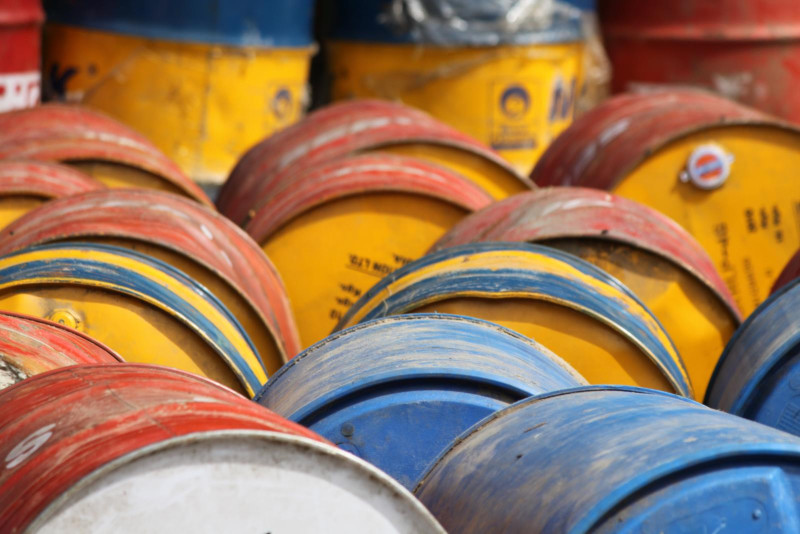On the one-year anniversary of the Oct. 7 Hamas attacks in Israel, conflict in the region continues to expand.
Last week saw escalating violence in the Middle East, including an Israeli ground invasion of Lebanon. Iran launched some 200 missiles at Israel on Tuesday, though most were intercepted, according to the Israel Defense Forces.
The intensifying conflict threatens to send shockwaves through the global economy – including oil prices. Matt Smith, energy analyst for Kpler, spoke with the Standard about how energy markets may be affected as the scope of the fighting in the region broadens.
This transcript has been edited lightly for clarity:
Texas Standard: What are the possible targets for Israel to retaliate against Iran? I think a lot of people have been talking about their nuclear program, but the energy infrastructure would appear to be an obvious one.
Matt Smith: Yeah, and there’s a number of different ways they could go, right, in that they could target a refinery – that would hurt domestic supplies of gasoline in Iran, but it would also mean that it would free up a lot of oil, which Iran would then struggle to to sell. So there’s that option.
Or they could target oil storage. There’s an island in the Mideast Gulf called Kharg Island, which is owned by Iran. And we actually tracked the storage there via satellite, and we can see that 40% of all of Iran’s crude oil inventories are in storage tanks on the island. And so that’s a possible target as well. You know, that would really cripple their exports.
And then the third one, to your point, is there could be sites related to their nuclear program targeted. But the U.S. has really kind of tried to push back on and voice publicly on any kind of attack on that front.
Of course, you think about some of the dynamics of the U.S. Navy being there, the size of the Iranian navy and trying to defend its its oil ports, that sort of thing. Who would be affected most if Iran’s crude exports were, in fact, halted or reduced? China, perhaps?
One-hundred percent. So virtually all of Iran’s crude exports go to China simply because of the sanctions being placed on Iran. But the interesting thing is that we have seen their crude exports really increasing over the last half a decade despite sanctions being in place there.
They’re like at about 1.5 million barrels per day, whereas they were they were a million barrels a day lower than that around the turn of the decade. Ultimately if you’re going to take that amount of supply out of the global market, there is going to be an impact, and it would cause prices to rise, because inevitably China would have to source crude from elsewhere.
» GET MORE NEWS FROM AROUND THE STATE: Sign up for Texas Standard’s weekly newsletters
I want to discuss a potential target that’s been in a lot of discussion right now, if the situation between Israel and Iran continues to escalate: the possibility of the Strait of Hormuz as a potential Iranian target.
Could you put that on the map for a lot of folks who can’t quite visualize that? And what is the relevance there of the Strait of Hormuz?
Sure. So the Strait of Hormuz is the biggest energy chokepoint in the world. It’s essentially the exit point of the Mideast Gulf. And so the Mideast Gulf is where exports are loaded from a whole host of Middle East countries: Saudi Arabia, Iraq, Kuwait, Iran, Qatar. Just over a third of the world’s waterborne crude exports pass through the strait.
And at its narrowest, it’s only 21 miles wide. And so when you’re kind of looking at an end game or worst-case scenario, people like to call on the Strait of Hormuz as the thing that you could block to really cause oil prices to go crazy, you know?
But the likelihood – as you mentioned, you’ve got the navies in place; the U.S. Navy is there and patrolling – of a prolonged blockage of the Strait of Hormuz is unlikely. So when you hear people talking about $150 oil or $200 oil, you know, that’s really rather unrealistic.
Well, just what is realistic then? As we’re looking at a ratcheting up of tensions right now, is that affecting oil prices? And we should also ask, are we hearing anything from President Biden on this?
Sure. So, yes, we’re seeing it impacting oil prices already. When you have such uncertainty, you’re seeing, you know, it feels like a dollar or two being tacked on every day over the last week. We’re kind of getting the same thing today. So there’s obviously that concern that it’s working its way into oil prices.
In terms of President Biden, you know, he did make a comment – he was asked last week about the possible strikes on Iran. He was kind of walking along, and it was a bit of an offhand comment that he made that things were being discussed, and that caused oil prices to rally like crazy.
And so it just goes to show the delicacy of the situation right now and how people are very much on tenterhooks here.














